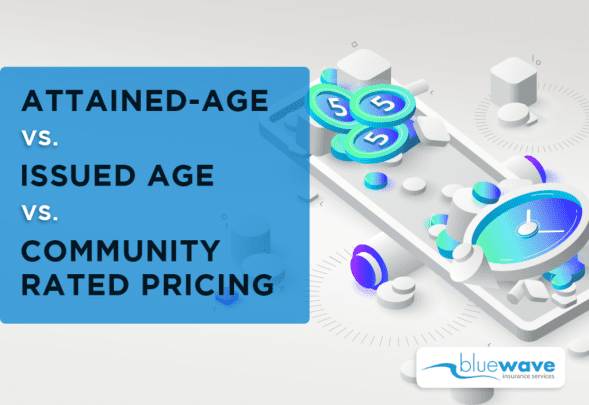
Does It Matter How Medigap Plans Are Priced?
We often hear folks asking if a particular plan is community rated, age-attained, or issue age. Most folks hear these terms being thrown around by other agents who are trying to push them to buy a certain Medicare Supplement plan.
In this post, I will explain the differences between how Medigap plans are priced and if it makes sense to purchase one over the other. First I will explain exactly how rate increases work on Medicare Supplement plans.
Compare Medicare Supplement quotes from the Nation's top rated carriers for Free
Call us at 800-208-4974 or enter your details below for instant access
Medigap Rate Increases Explained
When it comes to Medicare Supplement plans, the rates will increase over time. How much will they increase? The truth is, no one knows exactly how much the prices will go up in the future for any particular plan or carrier. If an agent or carrier claims to know what the rates will do, that agent/company is lying to you, plain and simple.
It is important to know exactly how your Medigap plan will increase over time.
There are two possible functions of rate adjustments pertaining to Medicare Supplement plans.
1. Age Increase
The age increase is exactly what it sounds like. The insurance company increases the rate a little each year, as you get older. Age increases, range between 1.5% – 5% per year. This rate increase generally starts around your 68th birthday and occurs once per year. This increase only affects policies that are “age-attained.”
2. Inflation/Cost of Business (State-wide) Adjustment
The second rate adjustment function occurs when the insurance company increases your rate due to inflation, the cost of doing business, claims, etc. The carrier will usually have different adjustments for each Plan letter.
For example, Plan G may have a 5% rate increase while Plan F has a 10% rate increase. The company will adjust ALL policies on a statewide basis at the same time. For simplicity, we’ll call this the “state-wide increase.” It is possible for a carrier to have a 0% rate adjustment or even a rate decrease!
Historically, Plan G enjoys a much lower rate increase than Plan F. This function affects ALL Medigap policies, including issue-age and community-rated policies.
An example of a “state-wide” increase:
An example of both functions:
How Are Medigap Plans Are Priced?
Age-Attained Pricing
This is the most popular pricing method the carriers use. With an age-attained policy, the carrier will price the policy based on your age at issue and the premium will increase over time due to your age.
Issue-age Pricing
The premium is based on your age at issue and the premium will only increase when the carrier has a “state-wide increase.” You will not receive an annual age increase.
Community-Rated Pricing
With these plans, the base premium is priced the same for everyone in the area, regardless of age. Your policy does not increase due to age.
Related Article: Medicare Supplement Plans: Everything You Need To Know
What Method Is Best?
In reality, there is little advantage between the 3 pricing methods. First, community-rated plans sometimes start higher and almost always have a built-in enrollment discount that diminishes a little each year. This causes the premium to increase automatically every year, in addition, you will have a “state-wide” rate adjustment each year.
Issue-age policies may not increase based on your age but they will increase when the insurance company has a statewide adjustment each year. Age-attained policies tend to start out the lowest.
Agent Tip
It is important to get unbiased quotes and advice from us. Contact us at (800) 208-4974 for a free quote comparison.
All policies will have an annual statewide adjustment, due to inflation or other reasons.
All the rates will increase over time. For that reason, we help our clients shop their rate each year. If there happens to be a lower rate with another carrier we will help you change carriers to save money.
Alex Wender is the founder and CEO of Bluewave Insurance. He has been blogging about Medicare-related topics since 2010. Since then, he and his agency have helped thousands of people across the country choose the right Medicare to fit their needs.